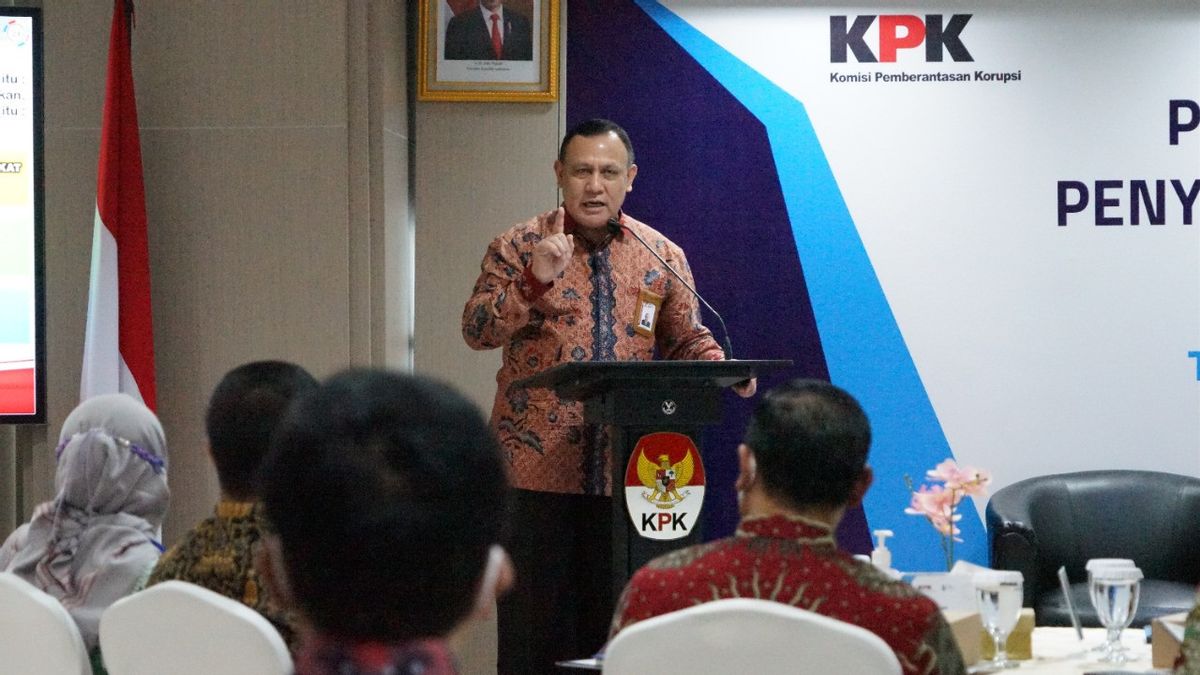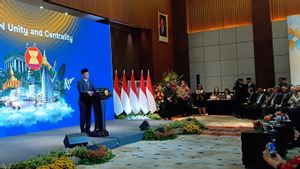JAKARTA - Chairman of the Corruption Eradication Commission (KPK) Firli Bahuri revealed that 32 ministers or heads of state institutions were involved in corruption cases. This happens because of weak internal systems and working mechanisms.
"Corruption occurs because the system is weak. System improvement is the key for us to be able to close the gap in corruption," said Firli in his written statement, Friday, July 15.
In addition to arresting 32 ministers for corruption cases, since the KPK was established in 2004, there have been 251 echelon officials who also suffered the same fate and 402 cases involving ministries/agencies.
With this condition, Firli then advised the line ministries to improve the system. He also conveyed this in front of the Minister of Industry (Menperin) Agus Gumiwang Kartasasmita who was present at the KPK Red and White Building, Kuningan Persada, South Jakarta on Thursday, July 14 yesterday.
The study, continued Firli, must also be carried out in order to close the gap in corruption in the ministry.
"If there is a leak, it can be repaired immediately so that it doesn't happen again and can be used by irresponsible people. Of course the system created must prioritize the principle of openness," he said.
Meanwhile, Agus Gumiwang who was present at the Anti-Corruption Strengthening event for State Organizers with Integrity (Paku Integrity) said the briefing was important for him and his subordinates at the Ministry of Industry.
He hopes that anti-corruption values can be applied by all parties. "Together with the KPK, we will create a clean Ministry of Industry so that our goals and targets, both qualitative and quantitative, can be achieved," said Agus.
Agus said his institution had implemented an anti-corruption policy. Among other things, the gartification control unit, whistle blowing system, public complaints, conflict of interest service units.
Not only that, there are also consultations to technical guidance to units and employees in order to close the gap in corruption.
"In addition, as a form of increasing internal control and compliance with laws and regulations, I as a minister and echelon I officials have signed an internal audit charter as outlined in the Bali Comitment," said Agus.
Next, the Ministry of Industry has innovated services through an electronic-based system. "Currently, several applications have been implemented and technology updates continue to be carried out, such as the national commodity balance system," he concluded.
The English, Chinese, Japanese, Arabic, and French versions are automatically generated by the AI. So there may still be inaccuracies in translating, please always see Indonesian as our main language. (system supported by DigitalSiber.id)













